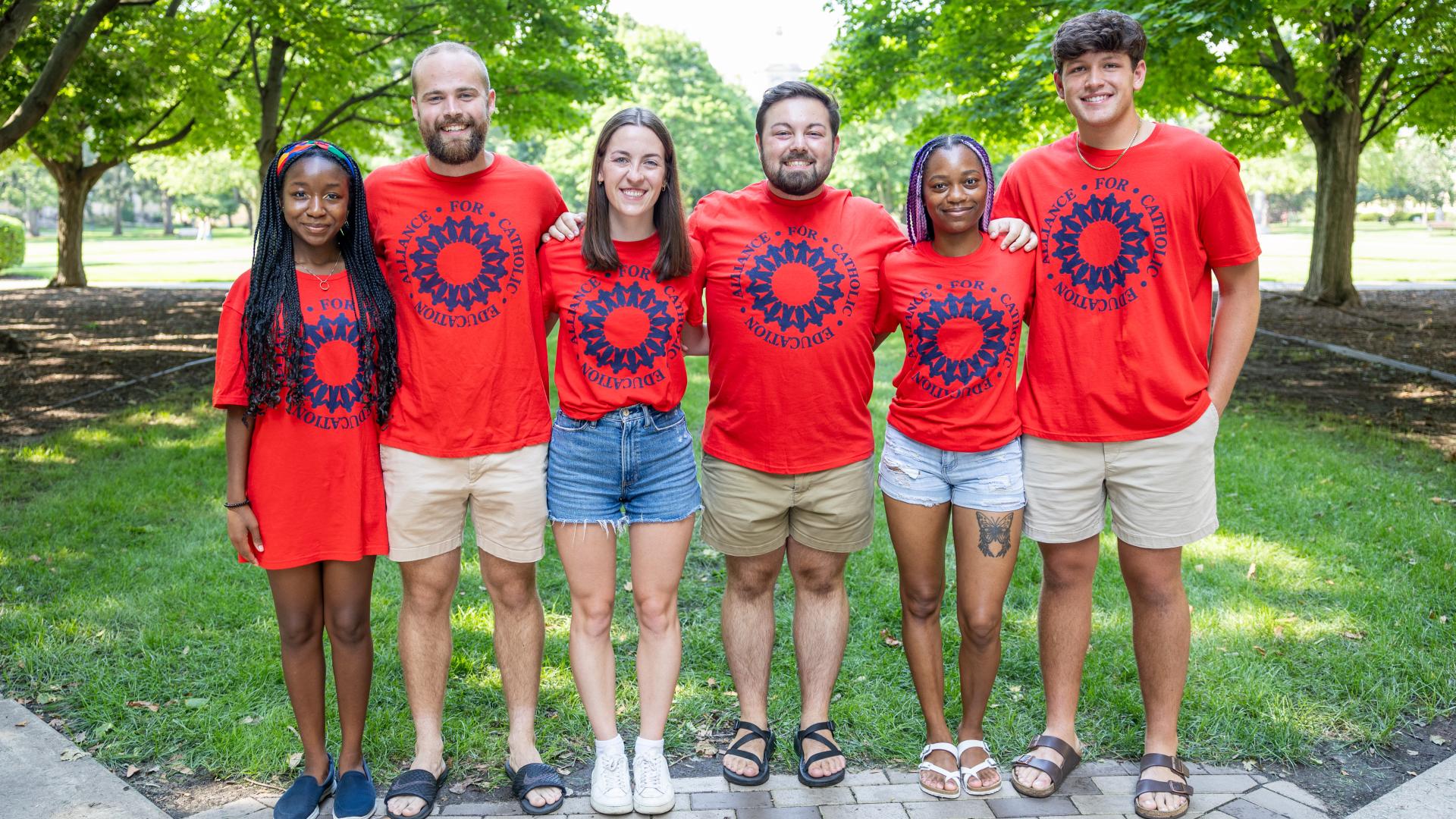 When I started my time in ACE, I thought the greatest challenge would be in the classroom. And yes—lesson planning, grading, and managing a room full of teenage girls pushed me to grow in ways I never expected. But the part I didn’t anticipate was how much I would be formed by the people I came home to each day.
When I started my time in ACE, I thought the greatest challenge would be in the classroom. And yes—lesson planning, grading, and managing a room full of teenage girls pushed me to grow in ways I never expected. But the part I didn’t anticipate was how much I would be formed by the people I came home to each day.
During my first year of ACE, the Louisville community was self-contained, meaning we were entirely composed of first-year teachers. While the obvious disadvantage is less second-year wisdom to our disposal, the larger one on our mind was that there was no one else to turn to but each other. To put it simply, my three community members and I were very different—if you were to plot us on a Cartesian plane, we would be in four different quadrants. Different personalities, prayer styles, routines, senses of humor. During our first summer, most of our community dinners and hangouts were tense, and, if anything, awkward—we didn’t know how to talk to one another and how to find common ground. It felt like we were orbiting around one another, held together by the inherent community-focused structure of ACE rather than natural chemistry.
And yet, something quiet and sacred began to grow: an intentional community. Not a picture-perfect one, but a real one. Built slowly through mismatched mugs of tea left waiting, over-intense games of Nertz over our scratched dining table, shared car rides in silence or laughter, prayers spoken out loud and others simply felt. The living room in our house—consisting of mismatched La-Z-Boys, a donated couch, and often incomplete puzzles—became our safe haven, a sacred space. Not because we designed it that way, but because it was easy to enter. You didn’t have to knock or schedule a meeting or prepare anything. You just had to show up.
 We dropped onto the couch with lesson plans, leftovers, or nothing at all. Someone might be grading while someone else vented about their day or explained the never ending drama of this season of Survivor. Sometimes we laughed; sometimes we sat in silence. The beauty of that space was that there were no expectations—only presence. And that was enough.
We dropped onto the couch with lesson plans, leftovers, or nothing at all. Someone might be grading while someone else vented about their day or explained the never ending drama of this season of Survivor. Sometimes we laughed; sometimes we sat in silence. The beauty of that space was that there were no expectations—only presence. And that was enough.
This was the ministry of presence—a phrase I had heard in passing, but came to understand intimately over the last two years. It means showing up, again and again. Not always with the right words, not with grand solutions, but with presence. Choosing to be with one another in the ordinary: a shared meal, a hallway conversation, a moment of mutual exhaustion after a long school day.
In ACE, we talk often about our pillars—especially community. What I learned is that community doesn’t always look like harmony. Sometimes it looks like disagreement handled with grace, laughter that surprises you, or learning how to love people not despite their differences, but through them.
Looking back, I see how those quiet acts of presence—some intentional, some accidental—were the soil where real community took root. We chose each other again and again. In doing so, we lived the Gospel in the most human of ways: through presence, patience, and love.
 Alliance for Catholic Education
Alliance for Catholic Education
